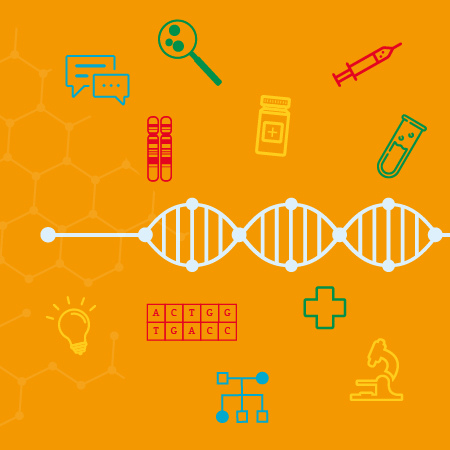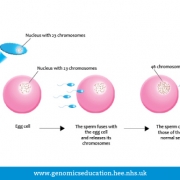Definition
A cell containing two copies of each chromosome is referred to as a ‘diploid cell’; human somatic cells are diploid: they contain 46 chromosomes, 22 pairs of autosomes and a pair of sex chromosomes.
Use in clinical context
Cells that are diploid contain two copies of each chromosome and therefore two copies of each gene. The exception to this are males who have one X and one Y chromosome. One copy of each chromosome comes from each of the individual’s parents. This mixing of genomic material ensures that offspring are genetically different from their parents. Cells can sometimes contain more or less copies of the chromosomes which can cause conditions or diseases (see aneuploidy).
Related terms
Aneuploidy | Autosomes | Cell | Chromosome | Haploid | Sex chromosome | Somatic cells




